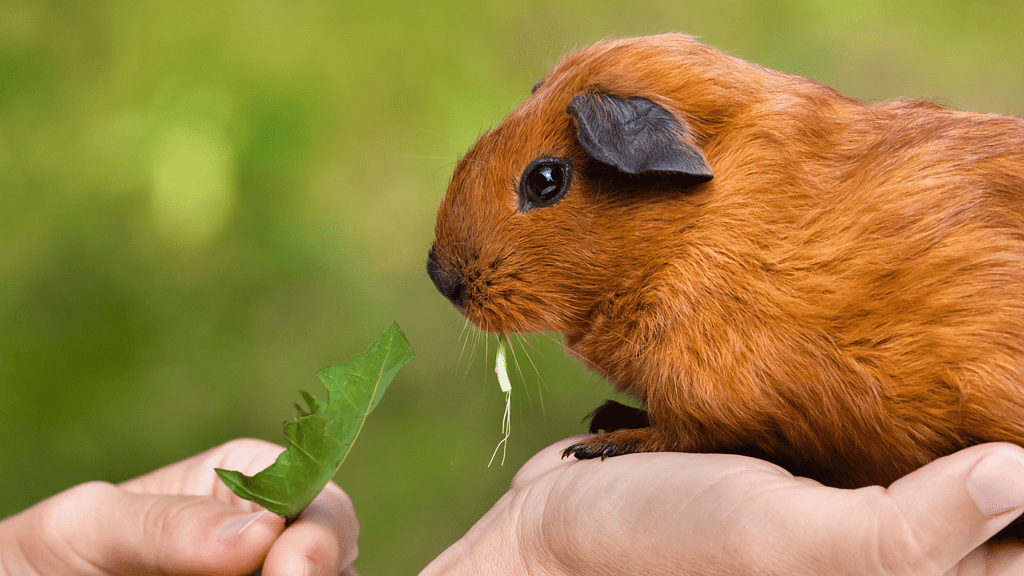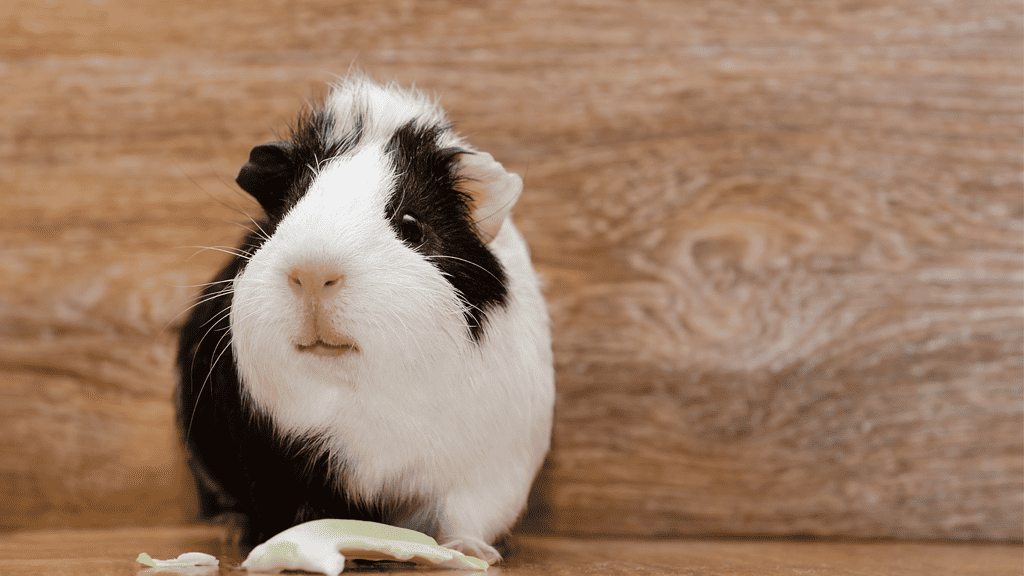If you consider buying a guinea pig, you most likely have to face the issues of cage cleanliness afterward. Many potential parents love pets, but sometimes they are offended by the smell of animals. But the question is: Do guinea pigs smell?

Yes, guinea pigs smell, but it’s not too bad unless you haven’t kept their cage clean. Your guinea pig needs weekly cleaning and grooming, and spot cleaning daily can also be beneficial to keep the bad odor away.
If you want to maintain your guinea pigs’ environment clean and healthy, you will need to clean their cage regularly.
More About Guinea Pig Smell
Like any other animal, guinea pigs can sometimes give off an unpleasant odour. Guinea pigs, like people, need to practice proper hygiene if they expect a very little smell.
Even though guinea pigs have a built-in passion for grooming themselves, things can still go wrong. A smell may develop if the environment in which your pet lives is unclean or if your pet is experiencing health problems. Some guinea pigs will produce a stronger smell than others, while others will leave behind more minor messes.
Possible Causes of a Guinea Pig’s Smell
Several potential causes for a guinea pig to have an offensive odor, and most of these issues are easily fixed at home. You can probably eliminate the smell quickly if you know what to look for.
1. Cage Conditions
The fur of guinea pigs may pick up any odors or oils in their housing. It makes no difference whether they are housed in a cage that has to be cleaned more frequently or shavings with a high percentage of oil; the problem persists in either case.
Alternating the bedding or cleaning the cage more frequently are the two available solutions. Changing the bedding in the cage is a long-term solution that could also reduce the frequency of cage cleanings.
2. Sickness
Guinea pigs that are unwell will frequently exhibit altered odours. This might be because of the illness or because your guinea pig cannot groom itself when it is ill. In any situation, the guinea pig should be taken to the vet.
3. Hay Smell
When you have guinea pigs, one of the smells that will stand out the most is the fragrance of freshly cut hay. This odor does exist, although it does not typically go very far from the guinea pigs. Most people think this smell is pleasant, but it might bother some people. Since guinea pigs require a significant amount of hay in their diet, it is unfortunately impossible to eliminate this smell.
In addition, if you choose shavings as your preferred bedding material, you may notice a scent similar to that of wood when you wake up in the morning, particularly if you put down the fresh shavings for the first time. One more time, the odor might not be offensive to certain people, but it is still an odor.
4. Diet
Your guinea pig’s diet can affect its odor. A diet that is not well-balanced might result in odor variations for your guinea pig as food makes its way through the digestive tract; some of these alterations can produce a rather unpleasant smell.
5. Leaky Water Bottles
Some guinea pigs are notoriously messy drinkers. There is a chance that you may end up with water bottles that have the propensity to leak. This results in the water pooling around the cage, which eventually mixes with the waste. This can result in a particularly putrid odor.
If the water bottles are leaking or pooling water, you may eliminate this problem by placing some absorbent pads underneath them. Adding the water bottle to the cage gives the guinea pigs an additional incentive to go into their box and may encourage them to do so more frequently.
How Often Should You Clean Guinea Pig’s Cage?
You should clean your guinea pigs’ cage at least once a week. If your guinea pig’s cage is not cleaned regularly, it can cause a variety of issues for both you and your pet.
When a cage is not cleaned regularly, it can become an ideal breeding ground for bacteria. This almost always results in an unpleasant odor and increased health hazards for you and your pet.
Additionally, you should spot-clean the cage every day. To remove the filthy shavings, you should scoop them into a bag. This will reduce the amount of odor that is there as well as the quantity of cleaning concerns that you have.
Always remember to switch out your shaving cream every two weeks. Shavings that are too old can soak up the stink of urine, which will then pervade the entire house.
How to Clean a Guinea Pig’s Cage?
1. Start with Bedding
The bedding used for guinea pigs must be absorbent, non-toxic, friendly on the animals’ paws, and dust-free, and also be able to help eliminate unpleasant odors. The possibilities of fleece liners, paper, cotton, and wood shavings are among the most common choices.
Your guinea pig’s cage and bedding will smell differently depending on the bedding and how frequently you clean it. Fleece liners are often recommended as the best bedding for guinea pigs.
2. Move Your Guinea Pig
Before cleaning the enclosure, you must find a secure spot to keep your guinea pig while you work. This might be another cage or container from which the animal cannot escape.
If you anticipate cleaning the habitat will take some time, you can relocate the food and water sources to the new site.
3. Clean Cage Accessories
When cleaning the cage, remove all accessories, including the food and water bowls, the toys, and everything else your guinea pig uses. You will need to clean everything in hot soapy water and allow everything to dry in the open air.
4. Remove the Bedding
This procedure varies according to the type of bedding that is being used. In some circumstances, you might be required to remove all the bedding material from your pig’s enclosure and dispose of it in the trash.
In such a case, you will need to remove the liner made of fabric or fleece and properly wash each item. It is essential to follow the cleaning guidelines provided by the manufacturer, but in general, the surface should be swept or shaken to remove any excrement and other debris. After that, wash it in hot water using a detergent that is either kind to the environment or very mild.

Do Male Guinea Pigs Smell Worst Than the Females?
Yes, male guinea pigs sometimes smell worse than female guinea pigs do. The bad smell comes from their scent gland, also called the grease gland in males.
This gland can occasionally secrete a greasy, sticky material characterized by a particular smell. Traditionally, wild Guinea pigs would utilize this smell to identify their area and establish their hierarchy.
The odour is also a symbol that it’s time to mate. When ready to mate, males employ this powerful smell to attract females. You only need to clean their grease gland once every few weeks and clean their cage once each week, and everything will be fine.
Do Guinea Pigs Smell Too much as They Get Older?
As they age, guinea pigs may begin to emit a stronger smell than they formerly did. As they age, guinea pigs have a harder time grooming themselves; therefore, this could happen to them. They cannot move around as well as they could when they were young and can’t clean themselves.
Additionally, as they age, many guinea pigs may develop stiffness and arthritis, making it much more challenging to clean themselves. Because of this, you will likely need to wash them every once in a while to assist in keeping them clean.
Conclusion
A guinea pig’s odor isn’t too unpleasant unless its cage hasn’t been cleaned in a while. Cleaning and grooming your guinea pig on a weekly basis is essential to keep the smell away.
